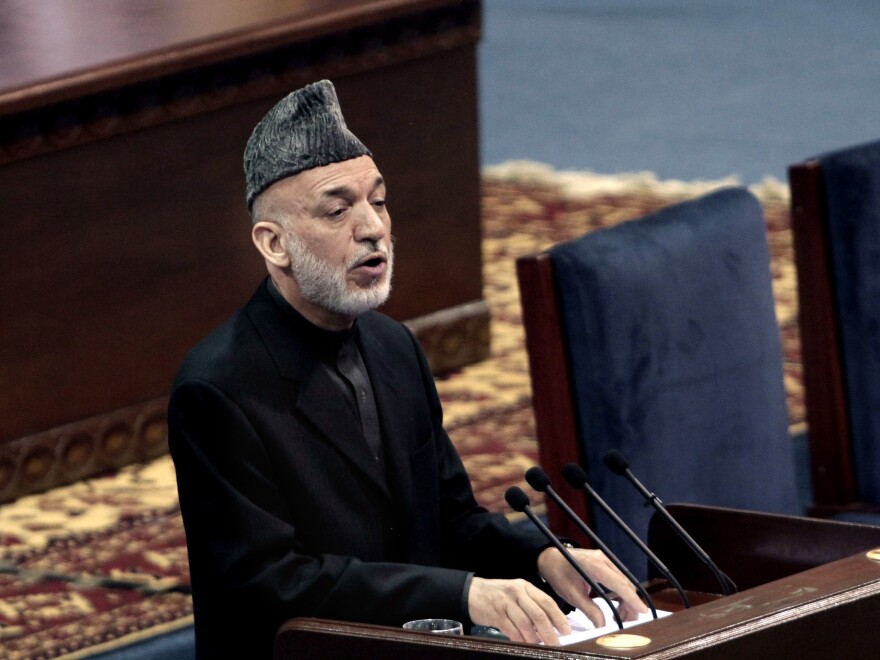The U.S. military has been fighting in Afghanistan for 12 years, and its future role could be determined, or at least heavily influenced, in the next few days by an Afghan Loya Jirga.
So, what is a Loya Jirga?
It's a "grand assembly," an Afghan tradition dating back at least three centuries, that brings together elders and community leaders from across the land to discuss matters of major national importance.
President Hamid Karzai called some 2,500 delegates to the capital, Kabul, to weigh in on a security agreement with the United States that would define what U.S. forces could and couldn't do after U.S. troops end their combat mission at the end of 2014.
Under a tentative deal, a reduced number of U.S. troops would remain in Afghanistan mostly to train and assist the Afghan military in its ongoing battle against the Taliban. No numbers have been set, but there's been talk of up to 15,000 U.S. troops staying on. The U.S. has about 50,000 troops in the country.
In a letter to Karzai, President Obama also noted that U.S. forces would engage in counterterrorism operations. This has raised the sensitive question of whether U.S. forces would do things like storm into Afghan homes on occasion. And what happens to U.S. troops accused of a crime: Do they face justice in Afghanistan or the U.S.?
On these matters, the Loya Jirga's verdict could be critically important.
There is no doubt the Afghan military could use the U.S. support. But after the extended U.S. presence in Afghanistan, some Afghans are weary of the American forces and want to keep their role limited and low-profile.

Political Cover For Karzai
Karzai, meanwhile, is scheduled to step down after Afghanistan holds presidential elections in April 2014. But he has long had a fraught relationship with the U.S., and he didn't hide that in his speech Thursday.
"I don't trust them, and they don't trust me," Karzai said.
As NPR's Sean Carberry reported from Kabul, "Karzai's meandering speech lasted more than an hour and vacillated between lukewarm praise of the bilateral security agreement, or BSA, and criticism of U.S. military operations."
If the Loya Jirga backs the security agreement, it will give Karzai political cover to accept the agreement. But if the Loya Jirga opposes any part of the deal, then things get really complicated.
The members of the grand assembly were selected by their communities across Afghanistan, and they are overwhelmingly older men, many of them Muslim clerics with turbans and full gray beards.
But other community leaders are represented, as well as some women. One female delegate heckled Karzai as he spoke, saying the U.S. would abuse the clause allowing them to carry out raids on Afghan homes.
The Loya Jirga plans to break itself down into smaller groups for three days of debate before delivering its verdict on Sunday.
Its decisions are nonbinding but will be seen as a barometer of Afghan public opinion, and could have a strong influence on what the parliament and Karzai ultimately decide to do.
Karzai, who has a reputation for being unpredictable, threw a wrench into the proceedings when he said near the end of his speech that the security measure should not be signed until after the April presidential election.
That's very much at odds with the U.S., which wants the deal wrapped up as soon as possible.
Copyright 2021 NPR. To see more, visit https://www.npr.org.



